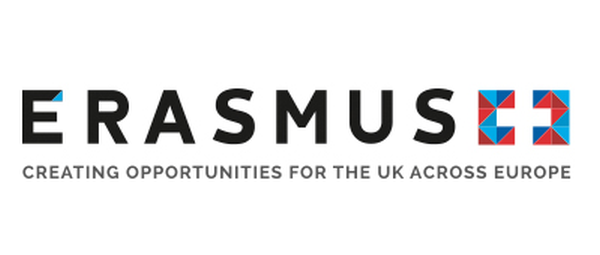
Posted on 09th September 2019
Leeds Beckett secures new Erasmus+ grant to help young autistic people make informed decisions when leaving school
Dr Marc Fabri and Dr Mhairi Beaton will jointly lead the new PICAP project which secured €400,000 of Erasmus+ Key Action 2 funding. PICAP (Promoting Informed Choices for All Young People) focuses on how best to support young autistic people (amongst other marginalised groups) as they plan to make the transition from compulsory schooling towards future positive destinations, thereby reducing early school leaving (ESL) across Europe.
PICAP will focus on young people’s identity development. A key innovative intellectual output of the project will be a game which allows young people to learn about skills that are useful in different areas of life, education or work. Young people will identify the skills they already possess and be encouraged to think about how to attain new skills. The game will allow them to articulate their identity in a way that can be shared with those around, exploring their possible futures in a safe, playful and engaging way. Teachers will be involved in supporting the young people and will benefit from relevant training modules developed as part of the project.
The key objectives of PICAP are:
- To create a range of tools which provide agency and support to young people, particularly those from marginalised communities to make informed choices about positive destinations following compulsory education;
- To share examples of good support practice in identity development and ESL prevention and how these can be supported effectively with a range of key stakeholders, including teachers and parents;
- To develop new training materials for teachers so that they can better support young people to make more informed decisions about positive destinations following compulsory education, and provide training to 400 advisors across the partner countries;
- To provide a transnational policy guide so that this process is supported within the policy context both regionally and transnationally within Europe.
In the long term, PICAP will contribute to increased employment, greater cohesion in society and economic prosperity despite the rapid changes in the employment market; particularly for groups who would be at heightened risk of not having the educational preparation and qualifications to become valued contributors to the twenty first century workplace and society.
Partners
Leeds Beckett University (UK) has substantial experience in applied autism research. The project will be led jointly by Dr Mhairi Beaton, Carnegie School of Education, and Dr Marc Fabri, School of Built Environment, Engineering and Computing.
Ahead Partnerships (UK) create and facilitate annual programmes of careers and skills activities involving employers and young people in disadvantaged communities.
University of Tromso (NOR) has a significant experience in research and teaching in the areas of inclusion and child welfare, as well as running training programmes for teachers, social workers, child welfare support workers and special educators.
The National Education Institute of Slovenia (SLO) covers all levels of pre-university education, involving about 30,000 teachers on the national level. It has extensive expertise in providing professional learning opportunities for qualified teachers in kindergartens, primary schools, secondary schools and other educational institutions.
Progresso Infantil (POR) is a neurodevelopmental center for people with conditions such as autism, OCD, sleep disorders, anxiety and ADHD, working across the lifespan.
CESIE (IT) is an accredited centre for the development, introduction and implementation of reforms in education and training to increase integration and develop employability.



